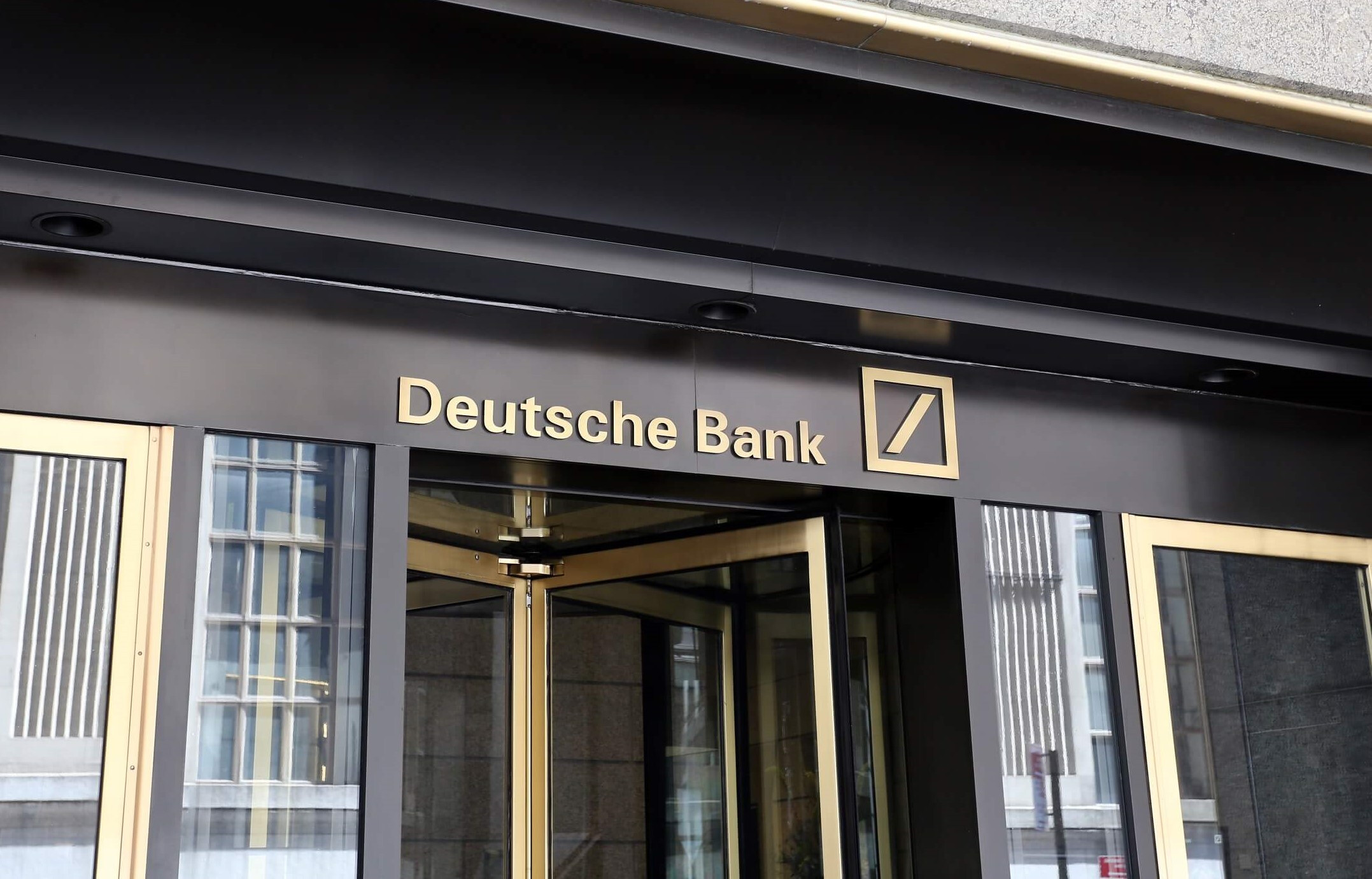Taurus, a Swiss crypto infrastructure firm has announced a partnership with Deutsche Bank to set up cryptocurrency custody alongside tokenized services for its clients.
According to a press release on Sept 14, the bank entered a global agreement with the firm to utilize its infrastructure in deploying more traditional assets on-chain in line with local legislation.
Lamine Brahimi, Taurus’ co-founder, expressed optimism over the deal and pledged more crypto-related support to the institution.
“This partnership is the result of a thorough and detailed selection and due diligence process where Taurus was able to demonstrate the quality and breadth of its products and technology. We are pleased to implement this global partnership with Deutsche Bank and look forward to supporting the bank in launching digital assets and DLT-based products and services across several booking centers.”
So far, both companies have hinted at drawing more institutional investors into the ecosystem with Paul Maley the head of global securities services adding that the cryptocurrency market is projected to soar to trillions of dollars becoming a choice spot for institutions.
Deutsche Bank’s crypto custody dream
Deutsche Bank has intensified efforts in the past to obtain a crypto custody license and further embarking on other digital asset-related investments.
The institution, also referred to as Germany’s biggest fiat lender, began nursing ambitions for a custody license in 2021 with plans to offer high-end services for investors and hedge funds.
“fully integrated custody platform for institutional clients and their digital assets providing seamless connectivity to the broader cryptocurrency ecosystem,” a report from the World Economic Forum reads.
The company recently revealed that it applied for a crypto custody license from the nation’s financial authority, BaFin in June.
In February, the Bank joined other big institutions including Credit Suisse, Pictet Group, and Arab Bank Switzerland to participate in a $65 million Series B funding.
Brahimi noted that the bank conducted extensive due diligence before it chose to deploy the firm’s infrastructure. “It started toward the end of 2021 and ended somewhere in 2022. We won the deal a couple of quarters ago,” he added.
On the verge of institutional investments
This year has marked several institutional clients trickling into web3 despite the collapse of FTX and the Terra ecosystem last year.
The renewed institutional demand became mainstream following the application for a spot Bitcoin (BTC) ETF by BlackRock, Valkyrie, and Fidelity Investments amongst others.
Although none has been approved by the Securities and Exchange Commission (SEC) which continues to cite market manipulation fears.
In Europe, the Markets in Crypto Asset (MiCA) regulation has been hailed over several quarters for reshaping rules and ensuring clarity for institutional investors to participate at all levels.
Brahimi also highlighted that recent developments around the market point to a heightened demand by top institutions amid regulatory hurdles in many jurisdictions.
Taurus, a Swiss crypto infrastructure firm has announced a partnership with Deutsche Bank to set up cryptocurrency custody alongside tokenized services for its clients.
According to a press release on Sept 14, the bank entered a global agreement with the firm to utilize its infrastructure in deploying more traditional assets on-chain in line with local legislation.
Lamine Brahimi, Taurus’ co-founder, expressed optimism over the deal and pledged more crypto-related support to the institution.
“This partnership is the result of a thorough and detailed selection and due diligence process where Taurus was able to demonstrate the quality and breadth of its products and technology. We are pleased to implement this global partnership with Deutsche Bank and look forward to supporting the bank in launching digital assets and DLT-based products and services across several booking centers.”
So far, both companies have hinted at drawing more institutional investors into the ecosystem with Paul Maley the head of global securities services adding that the cryptocurrency market is projected to soar to trillions of dollars becoming a choice spot for institutions.
Deutsche Bank’s crypto custody dream
Deutsche Bank has intensified efforts in the past to obtain a crypto custody license and further embarking on other digital asset-related investments.
The institution, also referred to as Germany’s biggest fiat lender, began nursing ambitions for a custody license in 2021 with plans to offer high-end services for investors and hedge funds.
“fully integrated custody platform for institutional clients and their digital assets providing seamless connectivity to the broader cryptocurrency ecosystem,” a report from the World Economic Forum reads.
The company recently revealed that it applied for a crypto custody license from the nation’s financial authority, BaFin in June.
In February, the Bank joined other big institutions including Credit Suisse, Pictet Group, and Arab Bank Switzerland to participate in a $65 million Series B funding.
Brahimi noted that the bank conducted extensive due diligence before it chose to deploy the firm’s infrastructure. “It started toward the end of 2021 and ended somewhere in 2022. We won the deal a couple of quarters ago,” he added.
On the verge of institutional investments
This year has marked several institutional clients trickling into web3 despite the collapse of FTX and the Terra ecosystem last year.
The renewed institutional demand became mainstream following the application for a spot Bitcoin (BTC) ETF by BlackRock, Valkyrie, and Fidelity Investments amongst others.
Although none has been approved by the Securities and Exchange Commission (SEC) which continues to cite market manipulation fears.
In Europe, the Markets in Crypto Asset (MiCA) regulation has been hailed over several quarters for reshaping rules and ensuring clarity for institutional investors to participate at all levels.
Brahimi also highlighted that recent developments around the market point to a heightened demand by top institutions amid regulatory hurdles in many jurisdictions.
